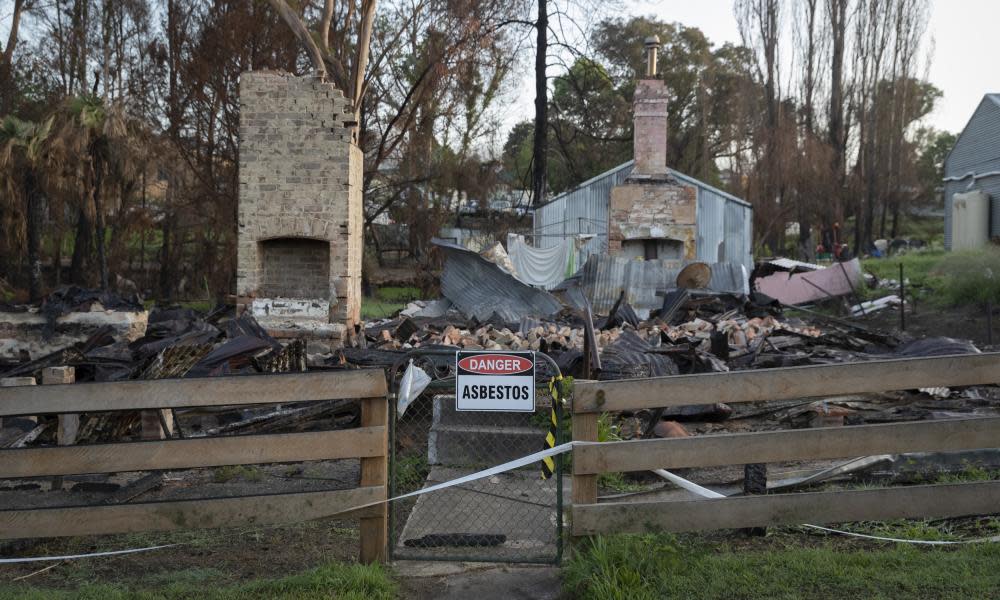Climate change could put insurance out of reach for many Australians

Millions of Australians could be left uninsured as the effects of climate change put increasing pressure on the financial system, the industry’s regulatory body has warned.
The Australian Prudential Regulatory Authority (Apra) executive director Dr Sean Carmody told a Senate hearing on Tuesday the nation’s insurers and banks were taking steps to prepare for worsening bushfire seasons and more extreme weather events.
However, he said the resultant rising insurance premiums may put coverage out of reach for many people, threatening the stability of the wider economy.
Related: 'A duty of care': Australian teenagers take their climate crisis plea to court
“From our point of view in terms of thinking of the financial system as a whole, it’s not enough if insurers have the capacity to pay every claim, but there’s a shrinking number of people who can actually secure insurance,” Carmody told the hearing.
“You could extrapolate to a tiny pool where no one has an insurance policy but every claim can be paid. That might still mean there is no insolvency problem at an insurance level, but from a financial system point of view, that represents a failure.”
Carmody said the regulator had been regularly advising large financial institutions about the financial risks posed by climate change.
This advice went beyond the physical and “transitional” risks – that is actions by shareholder activists or protesters – but also to the possibility of future lawsuits where no action is taken now.
“Increasingly, there are court cases here and internationally that suggest if we do not think about and look at climate risk, there’s potential liabilities that arise there,” he said.
The total cost to the insurance industry from extreme weather and natural disasters between November 2019 and February 2020 alone stood in the range of $5bn.
With similar events likely to increase in frequency and extremity in the future, Carmody said Apra was investigating how it may impact the country’s biggest financial institutions over the next 30 years.
Related: Australia's summer the wettest in four years amid cooling La Niña
Pressed by the Labor senator Tim Ayres on whether climate change would eventually “overwhelm” even the best efforts at mitigation, Carmody agreed.
“The cost of insurance is trending up, which will translate to higher premiums in aggregate,” he said.
His comments follow evidence given by residents still struggling after the catastrophic bushfires of 2019-20.
Michael Brosnan, the chair of community group Social Justice Advocates of the Sapphire Coast, said the insurance issue was making it harder to mount an effective recovery in the area around Cobargo in New South Wales.
Brosnan said his organisation was aware of at least 63 people waiting for basic sanitation some 14 months after the bushfires tore through the region.
“Up until June or July last year, many of these people were driving to Rocky Hall and Wyndham for toilet, shower and internet,” Brosnan said.

 Yahoo News
Yahoo News 
